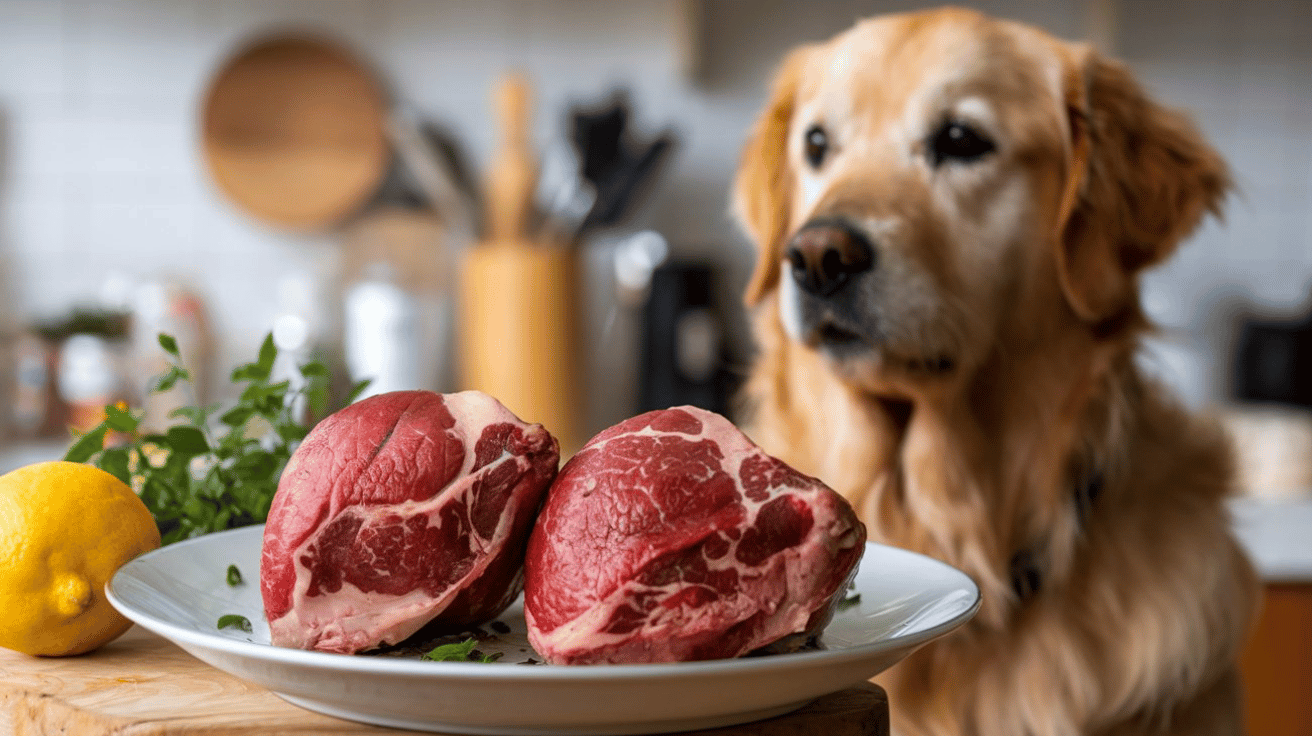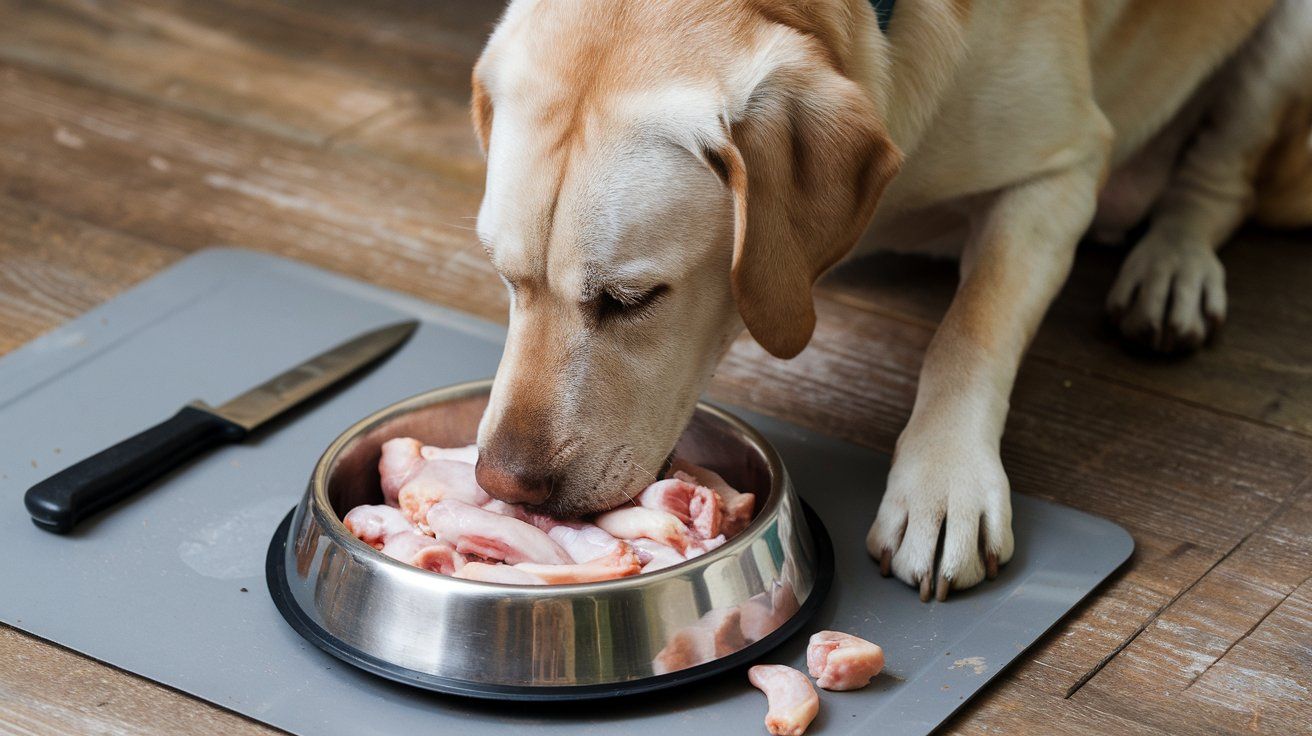No, it’s not safe. Teriyaki beef jerky contains salt, sugar, and spices like garlic and onion, which harm dogs. Eating it can lead to digestive issues, salt poisoning, and other serious health problems. Always choose dog-safe snacks instead to keep your furry friend healthy.
What is Teriyaki Beef Jerky?
Teriyaki beef jerky is a popular snack among humans. But can dogs eat teriyaki beef jerky safely? This query is more complicated than it might appear. While dogs can eat beef, the teriyaki flavoring raises concerns due to its ingredients, which are not always canine-friendly.

It is celebrated for its distinct marinade, which includes soy sauce, mirin (a sweet rice wine), sugar, and sometimes added flavors like ginger and garlic. This combination gives the jerky a unique sweet and tangy taste. However, while these ingredients make teriyaki jerky a delicious treat for people, they can pose significant health risks to dogs.
Concerns About Teriyaki Beef Jerky
The main concern lies in the additives and seasonings used in teriyaki, such as Tajín, a popular spice mix that often includes chili, lime, and salt. While Tajín might seem harmless, the spices can irritate a dog’s digestive system, causing stomach upset or discomfort. Ingredients like garlic and onion are especially toxic to dogs, even in small amounts, and can lead to serious conditions such as anemia.
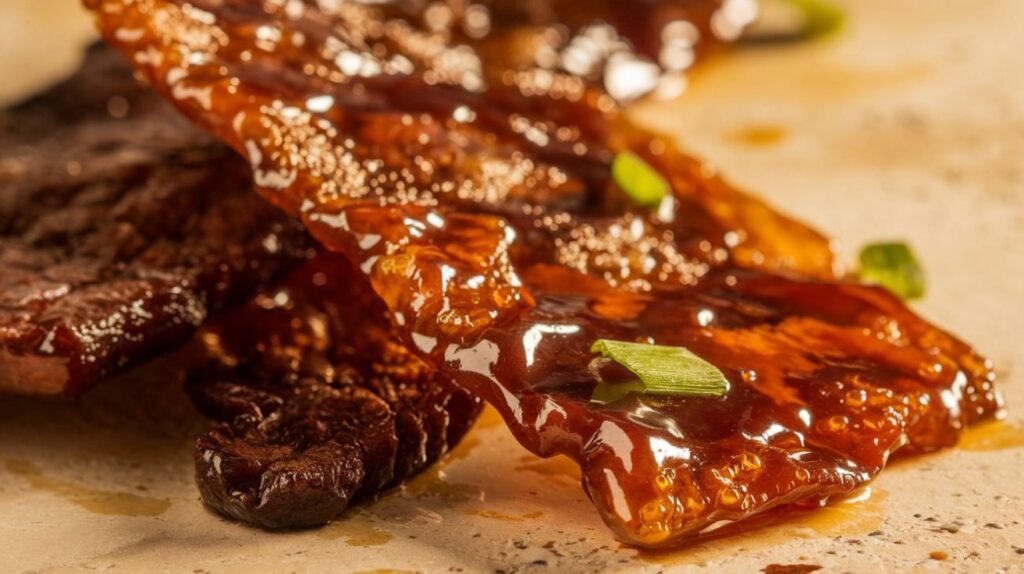
Additionally, the high sodium content in the soy sauce, Tajín, and added sugars can disrupt a dog’s nutritional balance, potentially leading to severe health issues like sodium ion poisoning, gastrointestinal irritation, and obesity. These risks highlight why teriyaki beef jerky, despite its nutritional value for humans, is not a suitable treat for your canine companion.
The Risks of Feeding Teriyaki Beef Jerky to Dogs
While the temptation to treat your dog to a piece of teriyaki beef jerky is understandable, it’s important to recognize this snack’s potential risks to its health. The main concerns involve the ingredients typically found in teriyaki sauce, which are unsuitable for canine consumption.
High Sodium Content:
Teriyaki sauce contains high sodium levels, which can be dangerous for dogs. Excessive salt intake can lead to increased thirst and urination and more severe conditions like sodium ion poisoning. Symptoms of this include vomiting, diarrhea, high fever, and seizures.
Toxic Ingredients:
Garlic and onion, often found in teriyaki recipes, harm dogs. These can cause oxidative damage to red blood cells, which leads to anemia. Symptoms of toxicity from these ingredients include lethargy, weakness, and pale gums.

Sugar and Additives:
The sugar content in teriyaki can also lead to health issues such as obesity and diabetes in dogs. Additionally, artificial additives and preservatives commonly found in commercial jerky can disrupt a dog’s digestive system, leading to gastrointestinal distress.
Nutritional Considerations for Canine Snacks
Choosing the right snacks for your dog involves more than just avoiding harmful ingredients. It also involves considering the overall nutritional impact of such treats on your pet’s diet. While high in protein, Teriyaki beef jerky does not align well with a dog’s dietary needs due to its additional non-beneficial components.
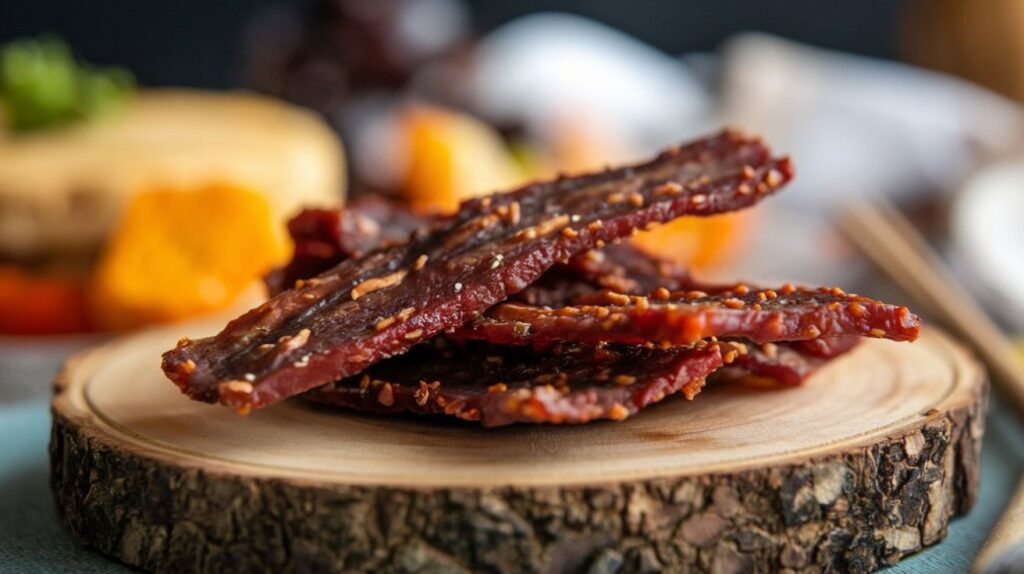
Although protein is a crucial part of a dog’s diet, the protein in teriyaki beef jerky comes with high sodium levels and potentially harmful seasonings that aren’t safe for dogs. Cleaner protein sources like chicken necks, beef heart, and beef kidney provide rich, natural nutrition without risky additives. However, caution is needed with raw chicken bones as they can splinter, posing choking hazards, and beef fat should be given in moderation to avoid digestive upset. Opting for these safer, nutrient-rich alternatives ensures your dog gets protein benefits without the dangers associated with jerky snacks.
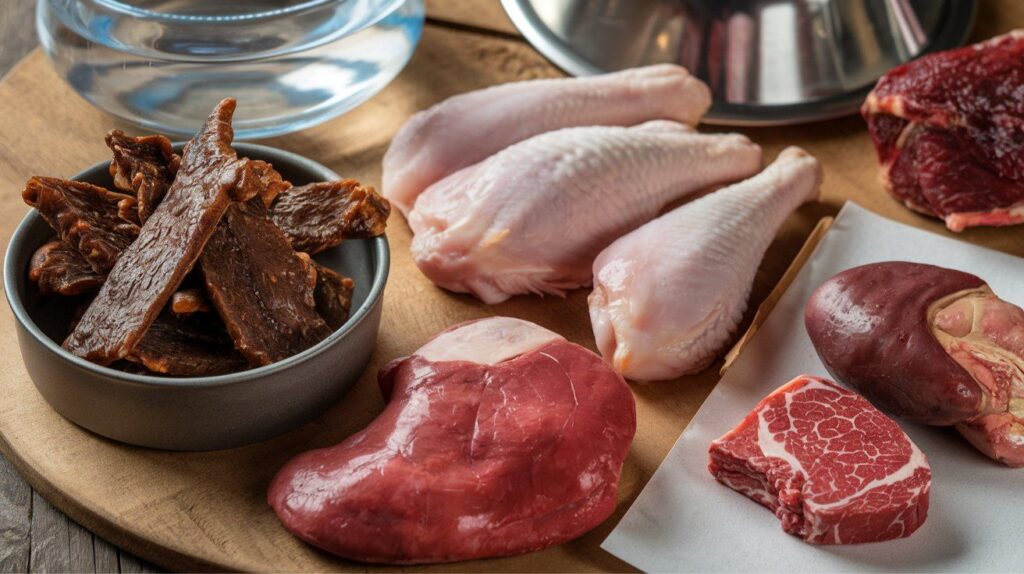
Caloric Intake:
Snacks like teriyaki beef jerky are often high in calories, which can quickly lead to weight gain in dogs, particularly those who are less active. Obesity in dogs can cause numerous health issues, including diabetes, heart disease, and joint problems.
Balanced Diet Considerations:
Treats should only make up a small percentage of a dog’s total caloric intake — generally no more than 10%. It’s important to ensure that most of their diet comes from balanced, nutritionally complete dog food formulated to meet their health needs.
Safe Alternatives to Teriyaki Beef Jerky for Dogs
If you’re looking for safer snack options for your dog that won’t compromise their health, there are plenty of wholesome and delicious alternatives to teriyaki beef jerky. These alternatives cater to the canine palate and ensure their dietary needs are met without the risks associated with harmful ingredients.
Homemade Treats:
Making your own dog treats can be a fun and rewarding way to control exactly what goes into your dog’s snacks. Simple recipes might include oven-baked chicken strips or dehydrated sweet potatoes, both of which are nutritious and free from the harmful additives found in many commercial treats.
Commercially Available Dog-Specific Treats:
Many pet food brands, such as (Zuke’s), offer healthy treatment options specifically for dogs. These treats are often made with natural ingredients and are free from the high sodium and sugar content in human snacks. Look for products with minimal ingredients and no added salt or seasonings.
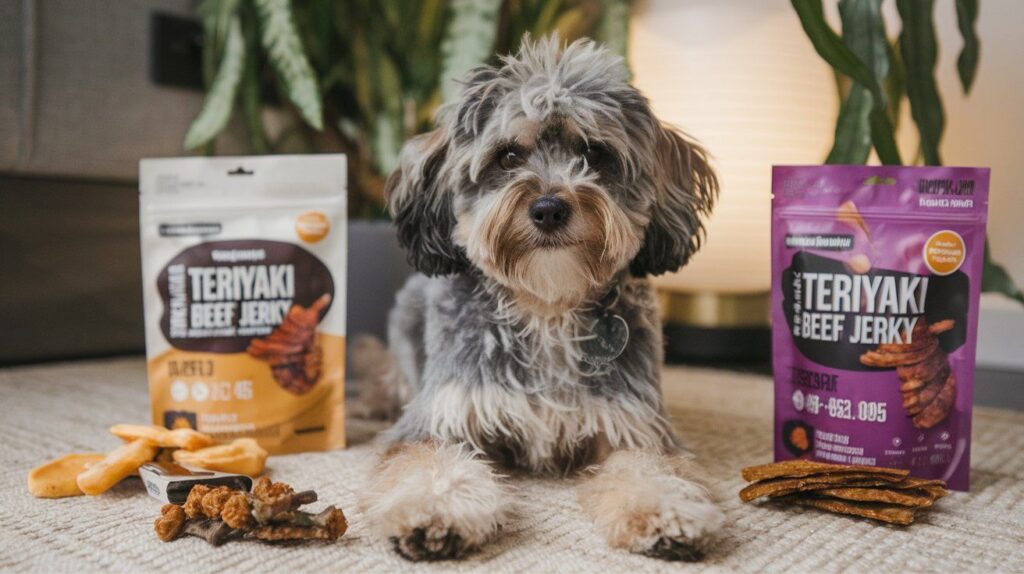
Vegetables and Fruits as Treats:
Some raw vegetables and fruits make excellent treats for dogs and can provide them with essential nutrients and fiber. Safe options include carrots, apples (without seeds), blueberries, and cucumbers. Always ensure any fruit or vegetable is appropriately sized to prevent choking.
Specialty Pet Treats:
Numerous pet-specific treats are available that are both tasty and beneficial for your dog’s health. For example, raw chicken feet are a great natural option, offering glucosamine and chondroitin for joint health and a crunchy texture to help clean teeth. However, they should always be given raw, as cooked bones can splinter and cause harm. By including such treats, you ensure a variety that supports your dog’s overall health and safety.
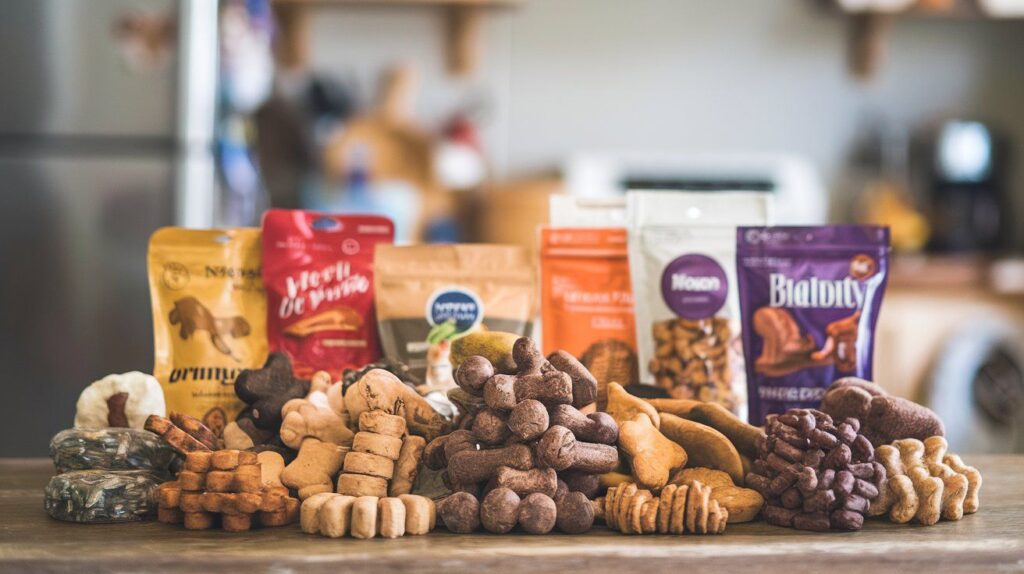
Safe Treat Practices for Dogs
Introducing new treats to your dog’s diet should be done with care and attention to their health and dietary needs. Here are some steps to ensure that introducing new snacks, like the safer alternatives to teriyaki beef jerky mentioned earlier, goes smoothly and safely.
Start with Small Portions:
When introducing a new treat, begin with small quantities to see how your dog reacts. This helps prevent gastrointestinal upset and allows you to monitor for any signs of allergies or intolerance.
Observe for Allergic Reactions:
Watch for adverse reactions after your dog consumes a new treat. Signs of an allergic reaction can include itching, redness, excessive grooming, or gastrointestinal issues such as vomiting or diarrhea. If these symptoms appear, discontinue the treatment immediately and consult your veterinarian.
Consult Your Pet Doctor:
Before making any significant changes to your dog’s diet, speaking with your pet doctor is a good idea. They can provide guidance based on your dog’s specific health needs and dietary requirements, ensuring that any new treats are appropriate and safe.
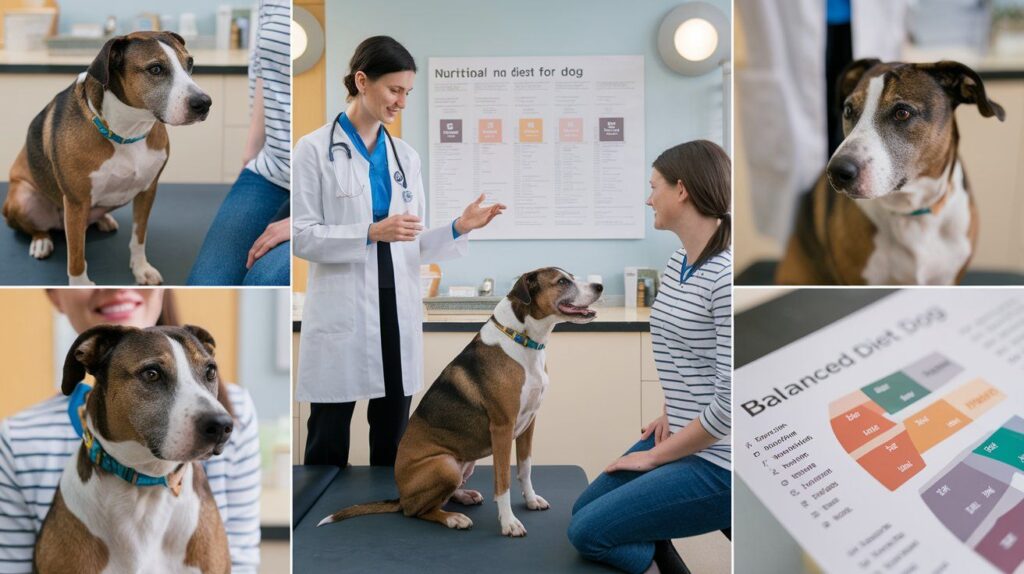
Gradual Introduction:
If the initial small portion goes well, gradually increase the amount over time. This helps your dog’s digestive system adjust to the new treat without overwhelming it, reducing the risk of digestive distress.
Maintain a Balanced Diet:
Treats should complement, not replace, your dog’s regular diet. Ensure that treats do not exceed 10% of your dog’s calorie intake to maintain nutritional balance.

Conclusion: Is Teriyaki Beef Jerky Safe for Dogs?
In conclusion, while teriyaki beef jerky may seem like a tempting treat, it’s not safe for dogs due to its high sodium, sugar, and harmful additives like garlic and onion, which can cause digestive issues, anemia, or sodium ion poisoning. Opting for safer, dog-friendly alternatives is the best way to let your dog enjoy treats without health risks.
Remember, treats should be occasional and never replace a balanced diet. Choose options that are low in calories and free from harmful ingredients to help maintain your dog’s health and vitality.



